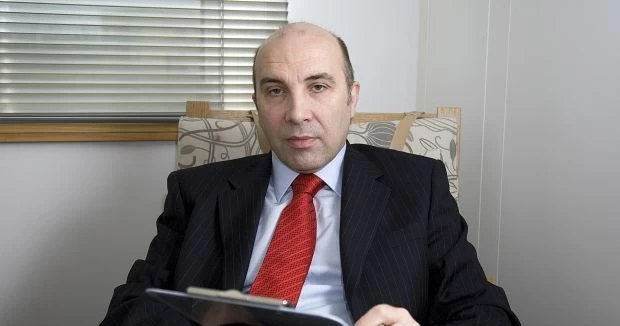
Partner Article
David Cliff: Avoiding the potholes to growth
Avoiding the potholes to business success might sound like the title of a dodgy self-help manual, but as I considered my car’s recently wrecked alloy wheel and pondered recent news stories, I couldn’t help but see the parallels.
Moody’s downgraded the UK’s rating to AA1, citing the unlikely prospect of significant future growth, and reports have suggested that local authorities, certainly here in the North East of England, face combined bills of hundreds of millions of pounds to repair their roads.
I thought about many of the companies I encounter as I work to help business people from across the region to achieve their goals, both in their work and private lives.
Then I considered what happens when you patch up a pothole, rather than repair the problem correctly. A seam is left in the road surface, which allows water in and, when the water freezes, it expands and causes the pothole to re-open.
It is a case of quickly dealing with a problem on a micro level, rather than stepping back and taking a wider, holistic view of the situation. Where else is there a similar problem? How much better would it be in the future if a greater overall action was taken now? Is this solution going to solve the problem, or is it just papering over the cracks and delaying the inevitable?
Patching up a pothole could easily be a euphemism for the actions of many people in companies or organisations across the country. All too often, managers and owners are failing to take the time to step back and address problems in a way which could lead to greater future efficiency and growth in their businesses.
Time for reflection is seen as a luxury which most businesses don’t allow themselves. This is why they constantly find themselves mopping up problems. This mindset is one of the biggest barriers to greater efficiency.
If a business encounters a problem, time should be taken to look to see where else that same issue is present within the organisation and deal with it on a widespread basis to reduce the chances of it arising again. Or, to drive the analogy further, consideration should be given as to whether there are other potholes on that road and will it better remove next winter’s troubles by completely re-surfacing the whole problematic stretch?
This type of reflection can also allow bosses to look at every aspect of their business; where it is located, how it is delivered, how it is positioned to achieve the company’s values and best fit its motivations?
Additionally, as cash strapped councils increasingly evade responsibility for damage and let the victims stand the cost, this parallels some companies leaving the customer to tolerate poor service, rather than organisations taking responsibility for ensuring they do what they are contracted to do.
Would the food industry be facing its current crisis if the people at the top had stopped and considered each area of their businesses, such as the provenance of the meat coming through their supply chains? The chances are that they would not.
Whether we are talking about a business – small or large – or a local authority, or even Government itself, it is often the case that short term pain, and even cost, are worthwhile to avoid longer term and more costly problems.
This isn’t to say that the ability to be more efficient and achieve growth is being solely constricted by the mindset of business people. It is not. You would have to be living in a very deep pothole to not understand the way the global economic landscape, and the problems in levering funding, are holding back commerce.
However, the right mindset can give many businesses the strongest possible chance of contributing more to their own, and the country’s success.
David Cliff is Managing Director of Gedanken and Vice Chairman of the Institute of Directors’ County Durham and Sunderland Committee.
This was posted in Bdaily's Members' News section by David Cliff .
Enjoy the read? Get Bdaily delivered.
Sign up to receive our daily bulletin, sent to your inbox, for free.








 Putting in the groundwork to boost skills
Putting in the groundwork to boost skills
 £100,000 milestone drives forward STEM work
£100,000 milestone drives forward STEM work
 Restoring confidence for the economic road ahead
Restoring confidence for the economic road ahead
 Ready to scale? Buy-and-build offers opportunity
Ready to scale? Buy-and-build offers opportunity
 When will our regional economy grow?
When will our regional economy grow?
 Creating a thriving North East construction sector
Creating a thriving North East construction sector
 Why investors are still backing the North East
Why investors are still backing the North East
 Time to stop risking Britain’s family businesses
Time to stop risking Britain’s family businesses
 A year of growth, collaboration and impact
A year of growth, collaboration and impact
 2000 reasons for North East business positivity
2000 reasons for North East business positivity
 How to make your growth strategy deliver in 2026
How to make your growth strategy deliver in 2026
 Powering a new wave of regional screen indies
Powering a new wave of regional screen indies